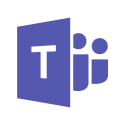
How to Find an Agile Coach For Your Team: A Comprehensive Guide

Looking for ways to implement agile methodologies but have no clue where to start? An Agile coach could be just what you and your team need. Agile methodologies are increasingly sought-after by busy teams because they offer benefits such as heightened productivity, adaptability to change, and improved collaboration.
However, navigating the Agile landscape can be challenging without the guidance of an experienced Agile Coach. In this article, you'll discover the crucial role of Agile coaching and provide step-by-step instructions to help you find the right coach for your team's needs.
What is Agile Coaching?
At its core, Agile coaching is about guiding teams through Agile transformations, fostering a culture of continuous improvement, and enabling effective collaboration. Agile Coaches are pivotal in facilitating team ceremonies, providing guidance on Agile principles, and nurturing a culture of innovation and adaptability.
Find the Right Agile Coach for You in 10 Steps
Assessing your team's needs: Before embarking on your search for an Agile Coach, it's crucial to understand your team's unique challenges and objectives. Identifying areas where Agile practices can make the most significant impact will help you find a coach aligned with your goals.
Defining expectations: Clearly defining your expectations for an Agile Coach is critical. Consider factors such as experience level, coaching style, and cultural fit to ensure a successful partnership.
Searching for candidates: There are various avenues to explore when searching for Agile Coaches, including professional networks, specialized job boards and freelancing platforms, Agile coaching organizations, and referrals from trusted sources.
Reviewing qualifications: When evaluating candidates, look for relevant certifications such as Certified SCRUM Master or Certified Agile Coach and a proven track record of success in Agile transformations.
Assessing coaching style: The coaching style of an Agile Coach can significantly impact their effectiveness. Look for coaches who demonstrate strong communication skills, empathy, and a collaborative approach. It's also important to understand their approach and coaching style, whether directive or facilitative. Determine which style aligns best with your team's needs and preferences.
Discussing engagement details: Clarifying the terms of engagement upfront is essential for a successful coaching relationship. This includes defining the engagement's scope, duration, and financial arrangements.
Adding a trial period: Implementing a trial period allows you to assess the coach's effectiveness and compatibility with your team before committing to a long-term partnership. This step is crucial in ensuring a good fit. Moreover, it allows the team and the coach time to adapt to a new collaboration.
Providing necessary support: To set your Agile Coach up for success, ensure they have access to all the resources and support needed to thrive in their role. This may include access to team members via Slack or other communication platforms, company software tools, and ongoing training opportunities.
Monitoring progress: Regularly reviewing the progress of collaboration with the Agile coach is crucial for course correction and optimization. Providing feedback and making adjustments as needed will help maximize the impact of the coaching relationship.
Encouraging continued learning: Agile practices continuously evolve, and ongoing learning is key to staying ahead. Encourage your team and the Agile Coach to prioritize continuous learning and development to sustain Agile practices effectively and maximize the successful outcome of your project.
Takeaway
In conclusion, finding the right Agile Coach for your team is crucial in your Agile transformation journey. By following the steps outlined in this blog and considering the FAQs below, you'll be well-equipped to make an informed decision that sets your team up for success.
Remember that Agile coaching is not just about implementing the best practices. It's also about empowering your team to thrive in a fast-developing environment.
If you're ready to take your Agile journey to the next level, visit our website and discover how we can help you get started with Agile ceremonies.
Frequently Asked Questions About Finding an Agile Coach
Q1: What qualifications should I look for in an Agile Coach?
Look for certifications such as Certified SCRUM Master or Certified Agile Coach and experience in Agile transformations.
Q2: What should I look for in an Agile coach beyond certification?
When hiring an Agile coach, you should consider relevant industry experience, alignment with core company values, and the coach's ability to drive change effectively. Personality fit and coaching style are also crucial factors to evaluate to ensure a positive work environment with the rest of your team.
Q3: How do I know if an Agile Coach is the right fit for my team?
Assess their coaching style, communication skills, and cultural fit during the selection process to ensure alignment with your team's needs and dynamics. A trial period could also reveal whether the Agile coach you selected is a good fit and can bring the desired results to achieve your team's goals.
Q4: What should I expect from an Agile coaching engagement?
Expect expert guidance on Agile principles, facilitation of team ceremonies, and support in fostering a culture of continuous improvement and transparent communication.
Q5: What common pain points could drive a company to seek an Agile coach?
Companies often seek Agile coaches because they struggle with poor planning and execution, lack of self-organization, resistance to change, ineffective leadership, and challenges in Agile adoption and implementation.








